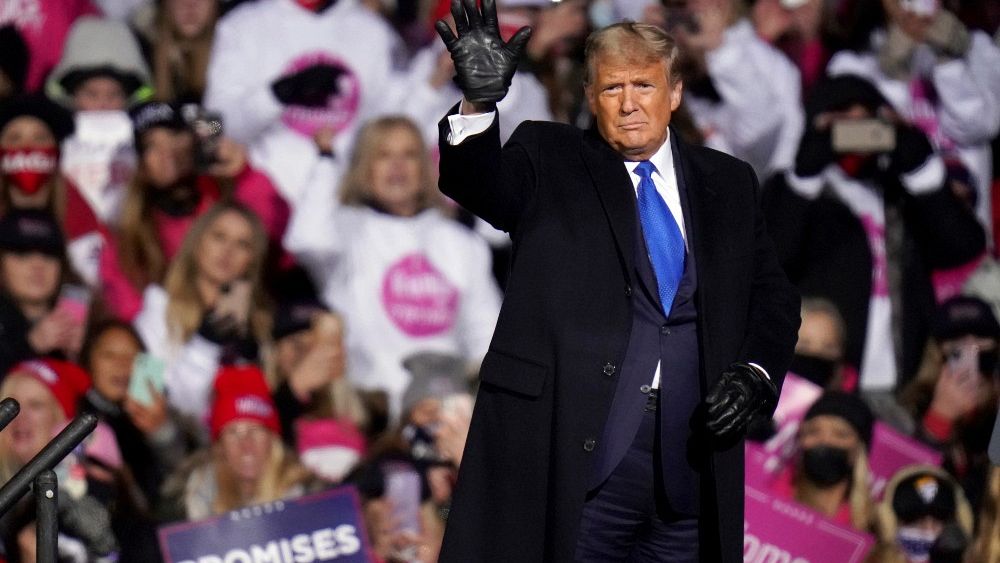Considered unthinkable to many, but inevitable to him: Donald”s Trump‘s rise to the pinnacle of global power was, among other things, a testament to his supreme self-belief.
Armed with a fortune inherited from his father, over the decades Trump put himself front and centre of his various business ventures; as a property developer, hotel tycoon and game show host. This was a ‘billionaire brand’ that Trump ultimately saw as a recipe for success in politics.
Announcing candidature
He entered the fray by announcing his candidature in June 2015, against an array of Republican rivals who at first ridiculed his presidential ambitions, but soon found that millions of members of the American public felt otherwise. His simple “Make America Great Again” slogan resonated with many conservative voters.
Once elected, the new president attempted to fulfill his campaign promises, including the building of his proposed Mexican-US border wall and ordering an entry ban on Muslims from some countries.
An economy which continued to improve boosted his standing. Trump put it down to his sweeping tax cuts, a claim disputed by Democrats.
Russian interference
The debutant leader continued to be tainted by suspicions about Russian influence on the 2016 election. His response to a US intelligence assessment that the Kremlin had interfered shocked many; speaking at his summit with Russian President Vladimir Putin in Helsinki in July 2018, President Trump pronounced himself unconvinced:
“They think it’s Russia. I have President Putin, he just said it is not Russia. I will say this: I don’t see any reason why it would be.”
Mid-term defeats
Throughout much of his first term, however, Trump’s popularity ratings remained stubbornly low. This was reflected in the Republicans losing control of the lower chamber in mid-term elections in November 2018
It meant his political agenda was now constrained by a new generation of progressive Democrats.
Impeachment
The power shift also paved the way for impeachment proceedings. The House of Representatives found he’d abused his office to target a political opponent. But it was an ultimately futile vote, as the Republican-dominated Senate was always considered highly likely to acquit him – and did so.
COVID-19
Amid the impeachment furore, another storm was gathering; a trickle of Covid-19 cases soon became a torrent, presenting Trump with the greatest challenge of his presidency.
His quixotic approach to the pandemic failed to stem the tide, the president himself eventually paying the price for what many considered a casual attitude to precautionary measures when he contracted the virus himself, not long after close aide Hope Hicks became ill.
George Floyd
Adding to one crisis, another of equal magnitude soon arrived: the fury over the killing of George Floyd spread across the nation, tapping into deep-lying feelings of injustice and racial inequality.
As the riots intensified, Trump cast the problem as one of law and order, an election gambit intended to mobilise his base support.
It was a strategy that worked in his first tilt at the presidency and, despite what the opinion polls were saying, he saw no reason to change course.









